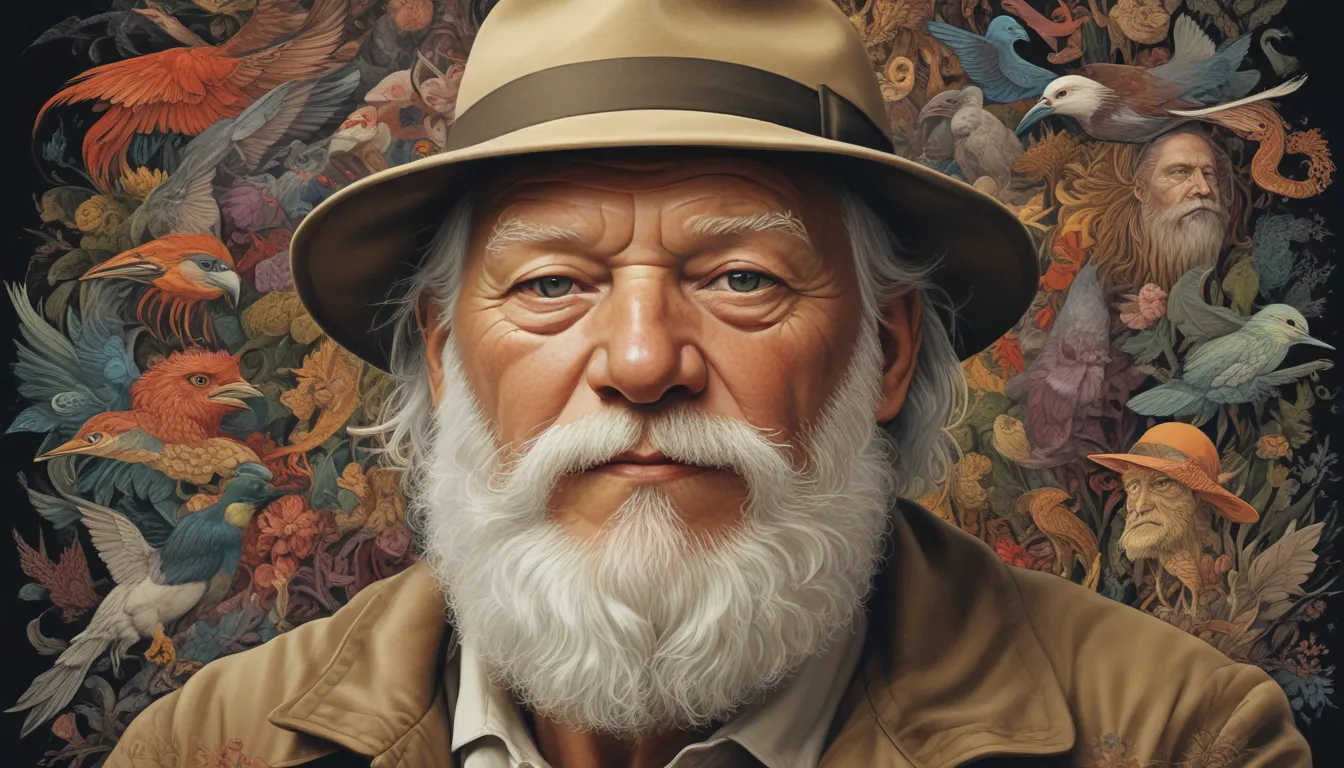The images in our articles may not match the content exactly. They are used to grab your attention, not to show the exact details in the text. The images complement the text but do not replace it.
Welcome to the captivating world of William Golding, the brilliant mind behind the timeless classic “Lord of the Flies.” Delve into the life and legacy of this celebrated English novelist, playwright, and poet as we uncover fascinating facts that illuminate his genius and shed light on the profound themes woven into his works.
Unveiling the Man Behind the Masterpiece
William Golding, born on September 19, 1911, in Cornwall, England, led a life as rich and complex as the narratives he crafted. Serving in the Royal Navy during World War II, Golding’s wartime experiences left an indelible mark on his perception of humanity and the darker aspects of human nature. After the war, he embarked on a career in teaching and writing, ultimately earning the prestigious Nobel Prize in Literature in 1983 for his exceptional contributions to the literary world.
The Early Years and Educational Journey
- Growing up in a small town in Cornwall, Golding was raised by his father, Alec Golding, a schoolmaster, and his mother, Mildred, a staunch advocate for female suffrage.
- His educational path led him to Marlborough Grammar School, where his father taught, before pursuing studies in Natural Sciences at Brasenose College, Oxford. A pivotal shift to English Literature marked the beginning of his literary odyssey.
Crafting a Literary Legacy
- Despite facing initial rejection, Golding’s debut novel, “Lord of the Flies,” triumphed as a literary masterpiece that has since captured the hearts and minds of readers worldwide. The novel’s enduring relevance in classrooms underscores its timeless appeal.
- Golding’s literary repertoire extends far beyond “Lord of the Flies,” encompassing a diverse array of works such as “The Inheritors,” “Pincher Martin,” and “The Spire.” Each narrative delves deep into profound themes like civilization versus savagery, the loss of innocence, and the inherent darkness within humanity.
- His novel “Rites of Passage” clinched the coveted Booker Prize in 1980, solidifying his position as a preeminent figure in English literature.
A Glimpse into Golding’s Philosophical Insights
- Shaped by the crucible of World War II, Golding held a somber view of human nature, believing in a primal darkness that lurks beneath the veneer of civilization.
- This grim assessment of human behavior forms the core essence of “Lord of the Flies,” where a group of stranded boys descends into a harrowing abyss of savagery and chaos.
The Man Behind the Curtain: Personal Life and Enduring Legacy
- Married to Ann Brookfield, an analytical chemist, in 1939, Golding shared a quiet life with two children, David and Judith.
- Despite his literary eminence, Golding remained a private individual, shying away from the limelight and preserving his solitude.
- His legacy lives on through his timeless works, offering profound insights into the intricacies of the human condition that continue to captivate readers worldwide.
- Posthumously released in 2008, “The Double Tongue” unveils a final glimpse into the enigmatic mind of this literary luminary.
The Nobel Laureate: Golding’s Literary Recognition
- Honored with the prestigious Nobel Prize in Literature in 1983, Golding was lauded by the Swedish Academy for his poignant portrayal of the human condition through the lens of myth and realism.
- His acceptance speech, “Writing and the World,” delves into the profound responsibility of writers in shaping society while reflecting on the art of storytelling.
Enduring Influence and Reverence
- Golding’s impact transcends the realm of literature, resonating deeply in psychology and social sciences, where his thematic explorations of human nature and civilization are widely studied.
- Embraced by educational institutions worldwide, his works, particularly “Lord of the Flies,” serve as poignant subjects for delving into complex themes and psychological character analyses.
- Immortalized in the iconic artwork of Sir Peter Blake’s “Sgt. Pepper’s Lonely Hearts Club Band” album cover, Golding stands alongside other British cultural luminaries as a testament to his enduring legacy.
- Recognized as a fellow by the Royal Society of Literature, Golding’s profound impact on English literature reverberates through time, inspiring adaptations across various art forms.
- His exploration of civilization, morality, and human nature remains as relevant today as it was during his lifetime, underscoring the enduring appeal and intellectual depth of his narratives.
Embracing the Enigma: Golding’s Lasting Legacy
In the vast tapestry of literature, William Golding’s legacy gleams like a hidden treasure waiting to be discovered. Beyond captivating narratives, his works serve as mirrors reflecting the intricate tapestry of human nature. With a legacy steeped in profound insights and masterful storytelling, Golding beckons readers to ponder the essence of humanity and the complexities of the world around us.
As we bid farewell to this chapter on Golding, let his works linger in our minds as invitations to delve deeper into the mysteries of human behavior and the enigmatic realm of existence.
Closing Thoughts
As you journey through the annals of William Golding’s life and works, may you find inspiration in his profound reflections on the human condition. With each page turned, may you uncover new depths of insight and contemplation that resonate with the essence of human nature. The legacy of William Golding endures as a beacon of intellectual curiosity and artistic brilliance, inviting readers to explore the enigmatic complexities of existence woven into the fabric of his narratives. Thank you for joining us on this enlightening odyssey through the captivating world of William Golding.






